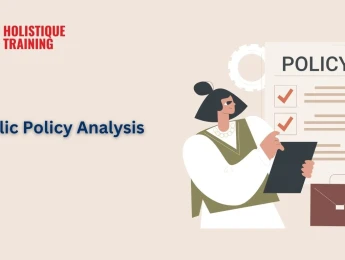This advanced training course is designed to equip professionals with the strategic thinking skills and analytical frameworks required to make high-stakes decisions with clarity, confidence, and precision. In today’s fast-paced and uncertain environment, decision-makers must rely on structured models that balance risk, opportunity, data, and long-term vision.
Participants will explore key decision-making theories, rational and behavioural approaches, and practical tools used by leaders to navigate complex challenges. The course emphasises critical thinking, scenario planning, risk analysis, and alignment with organisational strategy.
By the end of this course, participants will be able to:
- Understand the theoretical foundations of strategic decision-making.
- Apply structured models and frameworks to real-world business problems.
- Evaluate alternatives using both quantitative and qualitative tools.
- Balance intuition with data-driven analysis.
- Identify cognitive biases and improve individual and group decision-making.
- Align decisions with long-term organisational goals and stakeholder expectations.
This course is ideal for:
- Senior Executives and Strategy Leaders.
- Business Unit Heads and General Managers.
- Project and Programme Managers.
- Strategic Planners and Business Analysts.
- Policy Makers and Public Sector Decision-Makers.
- Professionals involved in high-level organisational choices.
The course combines interactive lectures, decision labs, strategic simulations, group discussions, and practical exercises. Case studies from both corporate and public sectors are used to analyse successful and failed decisions. Participants will be challenged to apply various models to contemporary strategic dilemmas.
Day 5 of each course is reserved for a Q&A session, which may occur off-site. For 10-day courses, this also applies to day 10
Section 1: Foundations of Strategic Decision-Making
- Defining strategic decision-making in modern organisations.
- Levels of decision-making: operational, tactical, strategic.
- Rational vs. bounded rationality approaches.
- The decision-making process: steps, roles, and timing.
- The role of uncertainty and complexity in strategic choices.
Section 2: Classical Decision-Making Models
- SWOT Analysis.
- PESTLE Analysis.
- Cost-Benefit and Risk-Reward Analysis.
- Decision Trees and Payoff Matrices.
- The Rational Decision Model and variations.
Section 3: Behavioural and Cognitive Approaches
- Kahneman and Tversky’s Prospect Theory.
- Cognitive biases and heuristics in decision-making.
- The impact of groupthink and overconfidence.
- Using pre-mortem and red teaming to challenge assumptions.
- Nudge theory and behavioural economics in organisational settings.
Section 4: Strategic Thinking and Advanced Models
- Scenario planning and future-back decision-making.
- The OODA Loop (Observe–Orient–Decide–Act).
- McKinsey 7S, Porter’s Five Forces, and Blue Ocean Strategy tools.
- Game theory and competitive dynamics.
- Real options analysis in strategic investments.
Section 5: Building Decision Competence and Organisational Agility
- Integrating decision-making frameworks into leadership practice.
- Decision rights and governance structures.
- Ethics, accountability, and transparency in strategic choices.
- Decision support systems and digital tools.
- Final simulation activity: Using 3 models to solve a high-stakes organisational dilemma and presenting recommendations.
Upon successful completion of this training course, delegates will be awarded a Holistique Training Certificate of Completion. For those who attend and complete the online training course, a Holistique Training e-Certificate will be provided.
Holistique Training Certificates are accredited by the British Accreditation Council (BAC) and The CPD Certification Service (CPD), and are certified under ISO 9001, ISO 21001, and ISO 29993 standards.
CPD credits for this course are granted by our Certificates and will be reflected on the Holistique Training Certificate of Completion. In accordance with the standards of The CPD Certification Service, one CPD credit is awarded per hour of course attendance. A maximum of 50 CPD credits can be claimed for any single course we currently offer.
- Course Code MG2 - 220
- Course Format Classroom, Online,
- Duration 5 days













